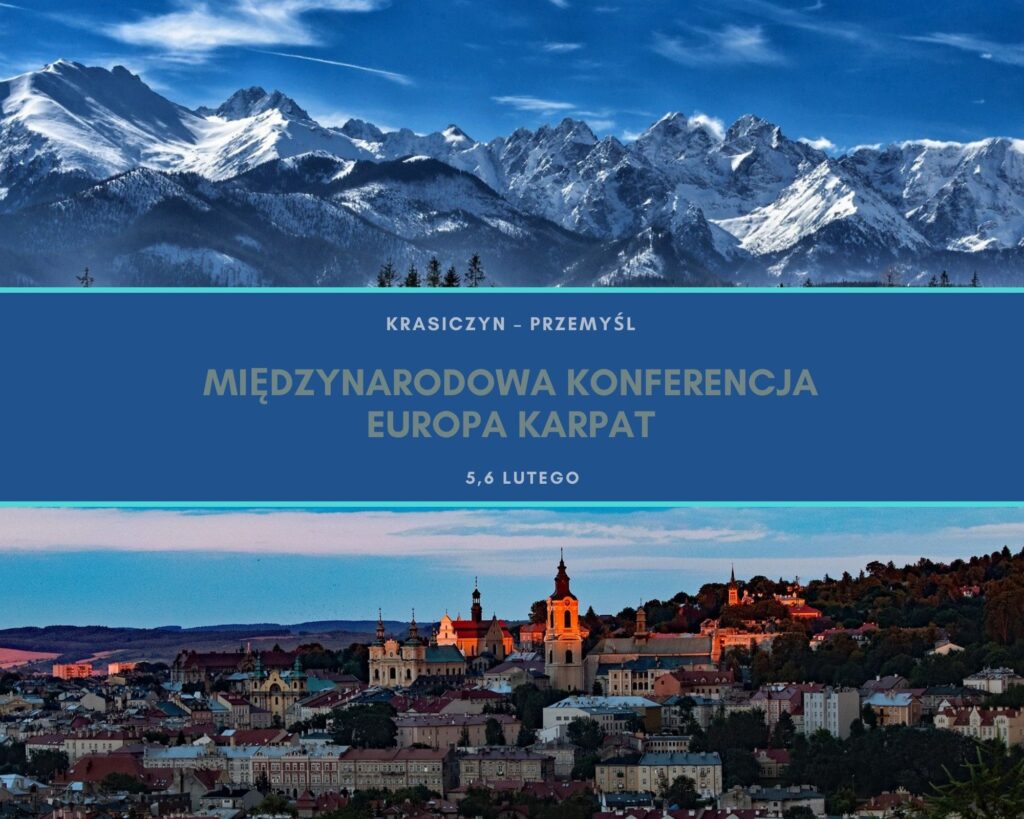
What will the Carpathians be like? - It depends on the wisdom of people who co-create this region. Therefore, it is important to combine different views and find synergy in the development of culture with economy, politics and ecology - announces Marek Kuchciński, head of the Commission for Foreign Affairs, before another conference in the series of Europe of the Carpathians.
The topic of ecology is interwoven in almost every thread. Europe of the Carpathians, whose next stage begins on Saturday (February 5), allows a broader look at the region.
- Sustainable development is about finding points of contact between many needs and directing them towards a path of development based on respect for our heritage - adds Marek Kuchciński. This heritage is culture, nature, technical and economic achievements. Carpathians are a special place on the map of Europe. They are connected by the beauty of the mountains, which have imposed on man the way of shaping the environment. It is necessary to understand the "soul" of the Carpathians in order to create solutions that will stand the test of time. To introduce changes that will not be artificially imposed and in the following decades will be absorbed by a strong internal identity of the region.
We can talk about identity in the political dimension. For example the issue of security has an identity dimension. For we perceive security not only through objective symbols or military-economic mechanisms. We feel safe in a space where our identity is respected. This identity is connected with place, history, and culture and is not subject to such rapid changes as the rushing revolution and worldview of the industrialized and multicultural society of the wealthy part of Europe.
Security should therefore be viewed more broadly and in more practical terms relevant to residents. These needs of people will be discussed by experts during the panel "Parliamentary Diplomacy for the Security of Europe". The invited guests are heads of parliamentary committees from the Carpathian countries.
Economic security, in turn, depends to a large extent on the "circulatory system" that connects the most important organs driving the complex organism of enterprises - the transport network. Carpathian Europe was one of the intellectual drivers behind the creation of the Via Carpatia transport network. It is an international route connecting the north and south of Europe. On the entire length of the 700 km section from the northern Polish border to the southern one (five provinces), not only roads but also jobs are being created. In December 2021 the Via Carpatia Expressway (S19) was named after Polish President Lech Kaczyński. The ceremony was combined with the opening of 4 new sections for drivers: from Kraśnik to Janów Lubelski and from Lublin to Niedrzwica Duża.
Via Carpatia is to be included in the Trans-European Transport Network - TEN-T. This would be another big impulse for change. By 2030, electric truck charging facilities are to be installed throughout the network. Parking lots are to have a secure space for truck drivers to use while charging their vehicles. 5G technology is to be used in the digitization of services. Major airports are to be integrated into the rail network. These challenges will be discussed by infrastructure ministers in a panel "From the Baltic Sea to the Black Sea and the Aegean Sea via the Carpathians? New connections within the TEN-T network as an opportunity for the region".
How the topics interrelate can be seen in another example. If we're talking about transportation infrastructure in the context of reducing CO2 emissions, it's imperative to talk about the relationship with agriculture at the same time. Panel "Green Deal in Carpathian Europe - Organic Agriculture as an Opportunity for Small and Medium Farmers, Carbon Agriculture, Biodiversity Strategy 2030, Forest Strategy" is an excellent connector of many disciplines.
Just look more closely at what carbon farming is. It's a strategy that involves growing crops in a way that can more efficiently store carbon dioxide, and therefore carbon, in plants and soil. It's also a return to a more organic approach to the land. In effect, such farming leads to enriched soil organic matter, better ability to capture and store carbon, and greater resilience to weather variability, drought and flooding. Healthy soils absorb and retain water better and have the ability to retain more nutrients, reducing runoff from agricultural fields to water sources.
So we see a chain formed from links: security, transportation and ecology, and the economy. The crisis caused by the 2020 pandemic has affected all Carpathian countries. The implementation of programs related to the reconstruction of economies after this crisis and at the same time the fight against high inflation is underway. European funds are to make a significant contribution to these programs. Panel "Rebuilding the economies of the Carpathian region after the economic crisis" is just such an economic opportunity to look internationally, but in the context of the needs of the regions.
Thus, the Carpathian Europe is a format that has been developed for years, in the direction of broadening horizons and links between various areas of state, regional, rural and farm functioning. That is why the conference will also include discussions about the social environment of universities and panels with the creators of the future of Central Europe: innovators, creators and inventors.
A special event
Special events will include an exhibition on Hungarian aid to Poland in the war with the Bolsheviks in 1920, the announcement of an international competition for "Legends of Podkarpacie" and a preview of the exhibition International Carpathian Painting Triennial - Silver Quadrilateral 2021, under the honorary patronage of President Andrzej Duda.
Marta Olejnik
Programme of the Carpathian Europe Conference


